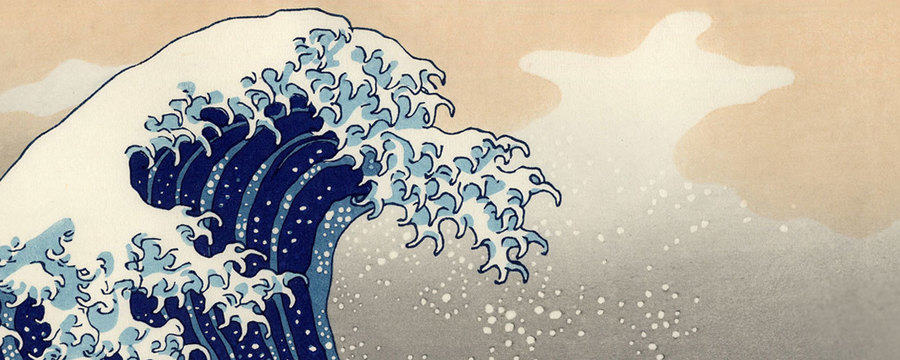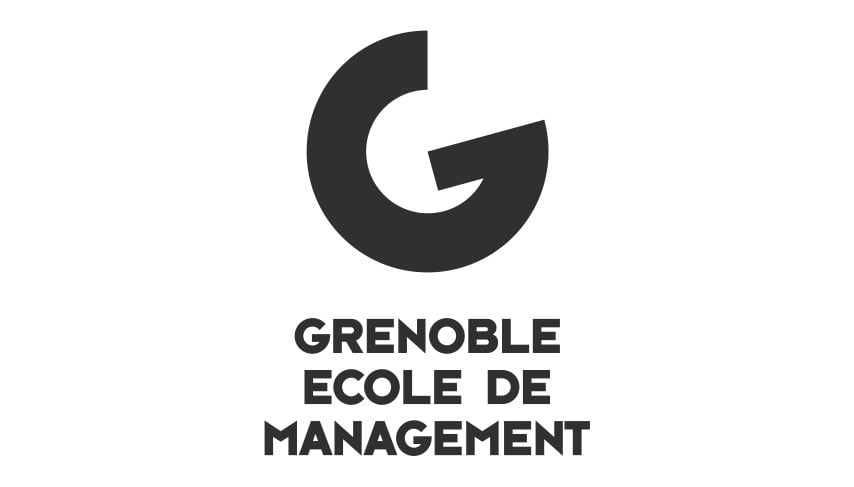Home / Politics & Society / Geopolitics / Global Studies: Risks and Threats in International Relations / References: International relations and global risks
References: International relations and global risks
References for Week 4
Internationalized civil wars
Sources
- Ivan Briscoe, “Conflict, security and emerging threats”, the Clingendael Strategic Monitor, June 20, 2014. Available here.
- Bertrand Badie, “Les guerres civiles sont malheureusement des guerres d’avenir”. Available here.
Links
- On the Spanish civil war: http://www.herodote.net/Annee_1937_2_3_-synthese-58.php
Further Readings
- James D. Fearon, “Why Do Some Civil Wars Last So Much Longer Than Others?”, Stanford University, 2012. Available here.
- Bruno Tertrais, La guerre, que sais-je?
- Pierre Hassner, Gilles Andréani, Justifier la guerre? De l’humanitaire au contre-terrorisme, Paris, Presses de Sciences po, 2005,364 p.
Undesirable impact of just wars
Sources
- Daniel Brunstetter & Jean-Vincent Holeindre (eds). The Ethics of War Revisited: Moral Challenges in an Era of Contested and Fragmented Sovereignty, Georgetown University Press, 2017. Available here.
- Daniel R. Brunstetter & Jean-Vincent Holeindre, “Yes, we can? La théorie de la guerre juste dans les campagnes présidentielles américaines (2000-2008)”, Raisons politiques, 2012/1 (n° 45). Available here.
- Daniel R. Brunstetter & Jean-Vincent Holeindre, ”La guerre juste au prisme de la théorie politique”, Raisons politiques, 2012/1 (n° 45). Available here.
Links
Further Readings
- Alex Bellamy, “Libya and the Responsibility to Protect: The Exception and the Norm”, Ethics & International Affairs, Volume 25.3 (Fall 2011). Available here.
- Daniel Brunstetter & Megan Braun, “The Implications of Drones on the Just War Tradition”, Ethics & International Affairs, Volume 25 (3), Fall 2011. Available here.
Conflict about resources control
Sources
- M. Edelman, C. Oya & S. Borras, “Global Land Grabs: historical processes, theoretical and methodological implications and current trajectories”, Journal Third World Quarterly, 34 (9) 2013: Global Land Grabs. Available here.
- Lévy, Jean-Pierre, “La première décennie de l’Autorité internationale des fonds marins”, Revue générale de droit international public, 109 (1), 2005, p. 101-122.
- Océan Indien: sécurité et coopération maritimes, Défense nationale et sécurité collective, 2009, vol. 10 (72), p.5-64.
- Outerspace treaty. Available here.
- Traité et principes des Nations unies relatifs à l’espace extra-atmosphérique. Available here.
Links
- International Maritime Organization: http://www.imo.org/en/Pages/Default.aspx
- International Seabed Authority/Autorité Internationale des Fonds Marins: https://www.isa.org.jm/fr
- On deep sea mining: http://www.jpi-oceans.eu/news-events/news/deep-sea-mining-briefing-international-seabed-authority
- On the variety of commodities: https://www.ft.com/topics/themes/ft-commodities-global-summit
- On land grabbing: http://www.ihdp.unu.edu/docs/Publications/GLP/GLP_report_01.pdf
Further Readings
- “The politics of the sea: Regulating Stateless space”, Journal of International Affairs Fall/Winter 2005, 59 (1), p. 1-269.
- Bernadette Mérenne-Schoumaker, Atlas mondial des matières premières: des ressources stratégiques, Paris, Autrement, 2013.
- Philippe Chalmin, Des épices à l’or noir: l’extraordinaire épopée des matières premières, Paris, Bourin, 2008.
- Thierry Garcin, Géopolitique de l’Arctique, Paris, Economica, 2013, 186 p.
- Max M. Mutschler, Arms control in space? Exploring conditions for preventive arms control, Basingstoke, Palgrave Macmillan, 2013.
Innovative intelligence
Sources
- Hedieh Nasheri, Economic Espionage and Industrial Spying, Cambridge Studies in Criminology, 2005, 228 p. Available here.
- Gabriel Colletis, “Intelligence économique: vers un nouveau concept en analyse économique?”
- Philippe Baumard, “Guerre économique et communauté d’intelligence”, Revue politique et parlementaire, janvier 1992, 51-57.
Further Readings
- Gabriel Rainer Michaeli, Competitive Intelligence, Springer, 2012.
- K. De Schepper, E. Vandebroek & F. Verbruggen, “Countering Economic Espionage and Industrial Spying: A Belgian Criminal Law Perspective”, Leuven Center for Global Governance Studies, working paper 17, March 2017. Available here.
A multipolar, unipolar, or hegemonic world
Sources
- Joseph Nye, Global Power Shift, TED lectures 2010. Transcript available here; video here.
- Lucien Bély, “Négocier la paix, de Westphalie au temps des révolutions “, Chapter 5 in Négociations internationales (D. Plcadidi-Frot et F. Petiteville, eds.), Presses de Sciences Po, 2013. Available here.
- Joseph Nye, “L’équilibre des puissances au XXIe siècle”, Géoéconomie, 2013/2 (n° 65), p. 19-29.
Further Readings
- Éric Mottet & Barthélémy Courmont, Repenser la multipolarité, Septentrion, 2013, 462 p.
- L’Union européenne et le nouvel équilibre des puissances, Politique européenne, n° 39, 2013/1. Available here. (See E. Aoun & S. Santander’s papers.)
- Paul Schroeder, “Did the Vienna Settlement Rest on a Balance of Power?” The American Historical Review, Vol. 97, No. 3 (Jun., 1992), pp. 683-706.
- See also: “Le concert européen de Vienne à 1919”.
Rising powers (Brazil, India, China)
Sources
- Marianne L. Wiesebron, “Blue Amazon: Thinking the defense of Brazilian maritime territory”, Austral: Brazilian Journal of Strategy & International Relations, 2 (3), Jan-Jun 2013, p. 101-124. Available here.
- Joan Deas & Y. Schemeil, “Un ou des modèles de puissance chez les émergents ?”, CERISCOPE Puissance, 2013. Available here.
- Yves Saint-Geours, “L’émergence du Brésil: à l’international aussi”, Politique étrangère, 2013/4, p. 77-86. Available here.
- Jean-Luc Racine, “L’Inde et l’ordre du monde”, Hérodote 1/ 2003 (N°108). Available here.
Links
- http://www.cairn.info/resultats_recherche.php?searchTerm=%C3%A9quilibre+des+puissances
- http://www.cairn.info/resultats_recherche.php?searchTerm=puissance%20de%20la%20Chine
- http://www.cairn.info/resultats_recherche.php?searchTerm=puissance+de+l%27Inde
- http://www.cairn.info/resultats_recherche.php?searchTerm=puissance%20du%20Br%C3%A9si
Further Readings
- Jean-Pierre Cabestan, La politique internationale de la Chine: entre intégration et volonté de puissance, Paris, Presses de Sciences Po, 2010, 464 p. Available here.
- Chine, nouveaux enjeux géopolitiques, Hérodote, n° 125, 2007/2, 192 p. Available here.
- Christophe Jaffrelot, L’enjeu mondial. Les pays émergents, Paris, Presses de Sciences Po, 2008, 350 p. Available here.
Emerging diplomacies (S. Africa, Nigeria, Iran, Indonesia)
Sources
- Le redressement de la crise asiatique et le rôle du FMI, rapport préparé par les services du FMI, juin 2000. Available here.
- Delphine Alles, “Indonésie : le non-alignement à l’épreuve de la concurrence sino-américaine”, Politique étrangère, 2013/4 (Hiver), p. 175-185. Available here.
Links
- http://www.cairn.info/resultats_recherche.php?searchTerm=puissance+de+l%27Afrique+du+Sud
- http://www.cairn.info/resultats_recherche.php?searchTerm=puissance+de+l%27Indon%C3%A9sie
- International Relations of the Asia-Pacific: http://irap.oxfordjournals.org/
Further Readings
- Julius Cesar I. Trajano & Yoes C. Kenawashttp, “Dealing with the legacy of dictatorship: Indonesia and Philippines”, 2012. Available here.
- Julius Cesar I. Trajano & Yoes C. Kenawashttp, Indonesia and the Philippines: Political Dynasties in Democratic states, 31 January 2013.
- Pascal Vennesson & Luc Sindjoun, “Unipolarité et intégration régionale: l’Afrique du Sud et la ‘renaissance africaine’ ”, Revue française de science politique, 2000/6 (Vol. 50), p. 915-940. Available here.
- Dominique Darbon, “L’Afrique du Sud: une puissance au seul regard des autres?”, L’enjeu mondial, 2008. Available here.
The Fall of Old World?
Sources
- Michael Cox, “Is the United States in decline – again? An essay”, International Affairs (London) (2007-07) vol.83: n°4, p. 643-653.
Links
- Statistiques de l’OMPI sur les dépôts de brevets: http://www.wipo.int/ipstats/en/wipi/index.html
Further Readings
- Robert Kagan, https://newrepublic.com/article/99521/america-world-power-declinism
- Robert Kagan, The World America Made, Vintage, 2013, 160 p. / L’ordre mondial américain: les conséquences d’un déclin, Paris, 2012, 215 p.
- Robert Kagan, “The twilight of the liberal world order”. Available here.
- Barry J. Eichengreen, Un privilège exorbitant: le déclin du dollar et l’avenir du système monétaire international, Paris: Odile Jacob, 2011, 280 p.
- Tonssira Myriam Sanou, “L’agenda de l’OMPI pour le développement: vers une réforme de la propriété intellectuelle?, Revue internationale de droit économique 2/ 2009 (t. XXIII, 2), p. 175-218. Available here.
From new norms to new rules
Sources
- Y. Schemeil & Wolf-Dieter Eberwein, Normer le monde, Paris, L’Harmattan, 2009. Available here.
- John E. Trent, “International institutions: The case for innovation and reform”. Canadian Foreign Policy Journal Vol. 11, 1, 2004. Available here.
Links
Further Readings
- B. Guy Peters, “Nouveau management public (new public management)”, Dictionnaire des politiques publiques, 2014, 4ème éd.p. 398-404. Available here.
New management formats, new standards
Sources
- L. Baudot, M.L. Djelic, & C. Richard, On the path towards global accounting standards: The interaction of structures, processes and meaning systems in accounting change, Paper for the 28th EGOS Colloquia, July 2-7, 2012, Helsinki, Finland. Available here.
- Jean-Christophe Graz, “Le monde des normes”. Bulletin HEC 80, mai 2010, pp. 24-54.
- Jean-Christophe Graz, “Les hybrides de la mondialisation: acteurs, objets et espaces de l’économie politique international”, Revue Française de Science Politique 56 (5), p. 765-89, 2006.
Links
Further Readings
- Christophe Hauert & Jean-Christophe Graz, “Beyond the Transatlantic Divide: The Multiple Authorities of Standards in the Global Political Economy of Services”, Business & Politics 15(4).
- Marie-Laure Djelic & Sigrid Quack, Transnational Communities: Shaping Global Economic Governance, Cambridge University Press. 2010.
- Y. Schemeil & Wolf-Dieter Eberwein “Le mystère de l’énonciation: normes et normalité en relations internationales”, p. 7-62 in Normer le monde, Paris, L’Harmattan, 1999.
World summits: protracted negotiations?
Sources
- Jan Melissen, Summit Diplomacy coming of Age, Netherlands Institute of international relations, Discussion Papers in Diplomacy. Available here.
- Karoline Postel-Vinay, Le G20, laboratoire d’un monde émergent, Paris, Presses de Sciences Po, 2011, 176 p. Available here.
Links
Further Readings
- Ahmad Barqawi, Another “Useless” Arab League Summit. Available here.
Disarmament and humanitarian Law: Successful negotiations?
Sources
- Won-soo Kim, High Representative for Disarmament Affairs United Nations, Session of the United Nations Disarmament Commission Opening Remarks, 2017. Available here.
- Document de travail de la Présidence, thèmes de réflexion, conférence du désarmement, CD/1929 January 30 2012. Available here.
Links
- Sarah Parker & Katherine Green, A decade of implementing the United Nations programme of action on small arms and light weapons: analysis of national reports, United Nations Institute for Disarmament Research, New York, Geneva: United Nations, 2012. Available here.
Further Readings
- Guillaume Devin, Faire la paix. La part des institutions internationales, Paris, Presses de Sciences po, 2009, 272 p. (Chapter 2, Henri Léval, “La lutte contre l’arme chimique et biologique. Place et bilan des institutions compétentes”). Available here.
- Scott Douglas Sagan & Kenneth Neal Waltz, The spread of nuclear weapons: an enduring debate [3rd edition] with new chapters on Iran, Iraq, and North Korea, and on the prospects for global nuclear disarmament, New York; London: W.W. Norton, cop. 2013.
Share this
This article is from the online course:
Global Studies: Risks and Threats in International Relations

This article is from the free online
Global Studies: Risks and Threats in International Relations


Reach your personal and professional goals
Unlock access to hundreds of expert online courses and degrees from top universities and educators to gain accredited qualifications and professional CV-building certificates.
Join over 18 million learners to launch, switch or build upon your career, all at your own pace, across a wide range of topic areas.
Register to receive updates
-
Create an account to receive our newsletter, course recommendations and promotions.
Register for free







